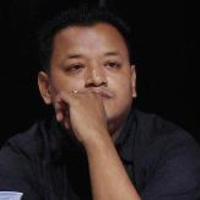Following is a reproduction of an interview of Dr. Malem Ningthouja(MN) by The Northeast Today(TNT).

TNT: You were associated with a number of student organizations of Manipur, which is an insurgency-ravaged state. What challenges did you face as a student leader then?
Dr. Malem: Theoretically, neither militarisation nor insurgency is meant to target the students as a category of soft targets. However, there are challenges that a student leader normally faces in a war-field like situation prevalent in Manipur. Those challenges depend on the ideological position that he/ she upholds and the public issue that he / she raises. A student leader that consistently raises democratic voices against State terrorism and destructive projects is a potential target of the State actors. When I was an active student activists, there were consistent threats from the police and the intelligence. There were also threats from some non- state armed groups, whom I suspected to be working in collusion with the State forces.
TNT: What role students can play to bring in integration in a conflict region like Northeast?
Dr. Malem: When commodity relation for profit is the predominant value system above all other forms of human relationship; there are tensions for selfish ends and ‘disintegration’ at various levels in the family, relatives, villages or neighbourhood, community, and so on. In this situations, although the students are being metaphorically depicted as a homogenous section, they too suffer from the same tendency of tensions and disintegrations amongst themselves. This does not meant that there cannot be any kind of tactical ‘integrity’ amongst those who share common ideology and interest. In this regards, I believe, there can be utopian idealism to homogenise the heterogeneous fragments into a permanent unity. This is a fantasy and cannot happen in the real world at the wink of an eye. Where to begin with the unity initiative and how to begin it will involve organisational efforts, which will be resented by others who do not uphold the same agenda. However, those who think that they are in the right path in their own design, they may attempt to integrate more numbers on their side. This is the only role that different sections of students may attempt to do, in their own ways for different agenda.
TNT: Northeast region has been facing an identity crisis for a long time now. What’s your take on that?
Dr. Malem: Identity crisis or any kind of crisis is not an exception to what is being labelled as the Northeast. Since we are ‘peripheral’ part of India, we are like the limbs or the foot that belong to the lower strata of the Varna social order; that is, the Indian rulers do not intend to place us above them, but they need to ‘tame’ us to be obedient to fulfil their geo-strategic and commercial interests in our land. Our land and resources have been expropriated from us to enrich their profit. We are forced to remain silent under militarisation and draconian laws such as the Armed Forces Powers Act. Since we are being treated in this manner for more than six decades; we have realised that our problem is not created by us. On the contrary, it is they who are placing the onus of their problem on us. In this contradiction between ‘us’ and ‘them’; it is for Delhi, that is, the hub of power and brains, to wisely think and extend the warm hands of friendship to solve the problem without causing unwanted bloodshed and humiliation on us. This will be the first step towards resolving what many have blindly interpreted as identity crises in the Northeast.
TNT: What are the issues that students leader can take up in contemporary time?
Dr. Malem: There are couple of issues that require urgent attention. Some of those are: (a) Campaign against violation of human rights by the State actors and non-state criminals; (b) Campaign against drug addiction and for adequate rehabilitation of the addicts; (c) Resistance against population invasion by the outsiders and destructive projects; (d) Resistance against militarisation in the residential areas and places of daily economic activities. (e) Campaign for community economic programmes towards achieving sustainable development and for employment generation; (e) Campaign for expansion of State investment in the medical sector and adequate medical allowances and facilities to the needy persons.
TNT: Do you think that student politics is fading away in the Northeast now?
Dr. Malem: Students are born and brought up in the families, which in turn are the units of a larger society. Anything that affected the society affected the individual and vice versa. In other words, there is an interplay of personal, social and political. Since the rulers behave politically, their actions will be politically either receptive or dissented by different sections; which in totality constitute an overarching political situation, from where an individual can never escape without playing some roles in it.. There are some sayings in Manipuri, “when the house is burning will the student inside it remain reading? When the stomach is hungry and life is threatened will the student affected by it remain reading? Students are the pillar of the society; they must act politically for their future.” To which direction the majority bulk of the students will go is a different issue. Different sections will adopt their own agenda and style of politics. In whatever style or agenda, student politics always persist.
**
Questionnaire by Dhiraj Sarma, Senior Editor, Northeast Today.
Responses by Malem Ningthouja, Campaign for Peace & Democracy (Manipur).
Dated July 20, 2015.



